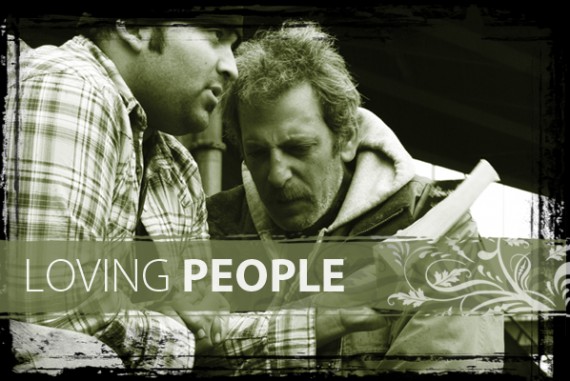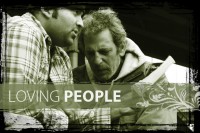
Much evangelism today is based on meeting needs. I understand why we do this, but I think there are some inherent dangers to this approach.
Meeting Needs Creates Self-Centeredness
One problem with meeting needs then is that it focuses on the needs, rather than on the people. Such an approach trains causes the ministries and the ministry target group to become self-centered. The ministry leaders want to find a “big need” so they can “make a splash” and “go big” in the community, in the hopes that the newspapers and news stations will notice, and give the church or ministry some free publicity. In this way, meeting a need of the community becomes about meeting our own need for recognition, honor, and glory. We must therefore be wary about doing our good deeds before men to be praised by them (cf. Matt 6:1-2).
But being “needs oriented” also causes people who have needs to become more self-centered. Learning about big needs in the community usually includes some sort of “Needs Survey.” And when we go around asking people what their needs are, it trains them to think of God as someone who is just there to meet their needs. “Needs Surveys” train people to think only about themselves and ask, “How are you going to meet my needs?”
Ironically, if we were actually living among and with the people of the community, Needs surveys would be completely unnecessary. If we truly lived with and among the people we were trying to serve, we would already know what the needs are. Maybe we would be suffering and struggling with many of the same needs ourselves!
Meeting Needs, but Missing the People
 Worst yet, when we focus on meeting needs rather than just on loving people and living life with one another, while we may meet many needs in the community, we rarely get to know the actual people of the community. I remember building houses with Habitat for Humanity (a great community project!), but never actually meeting or learning the names of the people who we were building the house for! I remember having food drives and clothing drives in the churches I pastored, and when we delivered the food and clothes to needy family, we spent less than five minutes with each family because we had so many deliveries to make. We met needs, but never got to know any people.
Worst yet, when we focus on meeting needs rather than just on loving people and living life with one another, while we may meet many needs in the community, we rarely get to know the actual people of the community. I remember building houses with Habitat for Humanity (a great community project!), but never actually meeting or learning the names of the people who we were building the house for! I remember having food drives and clothing drives in the churches I pastored, and when we delivered the food and clothes to needy family, we spent less than five minutes with each family because we had so many deliveries to make. We met needs, but never got to know any people.
Meeting needs is great, but loving people is better. Developing relationships one by one, and spending time talking with people takes more time and has small beginnings, but this is the way of the Kingdom of Heaven (Matt 13:31-32).




Another excellent post. Let me say as a person who volunteers for an international relief organization, that this concern is always primary for us. Meeting needs & people. For better or worse, and with mistakes along the way, we have had tremendous success in making disciples while meeting needs.
A needs assessment done within a community is done when one notices affliction – “Religion that is pure and undefiled before God, the Father, is this: to visit orphans and widows in their affliction.”
Being a conduit or “ministry” between those who have needs and those who desire to meet those needs is crucial to our functioning. But, you can ask anyone who has ever served with us in meeting needs as to whether or not we do it in a manner that doesn’t end in what we call “developmental disasters.” We do our best to hold the concerns you mention very close to our hearts.
There is also, in my view tow sets of needs that NEED to be addressed differently. The needs within the church and those without. “If it is contributing to the needs of others, let him give generously…”
I have a wealth to say on this topic, but would sure love to see how the comments develop. Peace and Blessings
Miguel,
Great points. I support a few relief organizations, and do believe that they do a lot of good. So I am not trying to disparage them. Also, there are times in the ministry of Jesus when he met the needs of large crowds of people, and probably did not have the relational connection with most of the people He ministered to.
I guess I am just wanting to encourage individual Christians to not rely solely on letting the big ministries do all the ministry, but for each one of us to get out there and get involved in the lives of others.
Exactly,
We call that “following-in” rather “following-up.” Get into the lives of others, in a good way, of course.
Frequently we do not need to ask people their needs because we have had a chance to get to know them well enough that we know their needs. On the other hand in working with the homeless, there are thousands in our city. It’s a very mobile population and we often do not see the same people from one time to the next.
When it comes to taking “stuff” to the homeless, we do ask what they are in short supply of generally. This winter, it has been tarps (for sitting under when it rains) and men’s underwear. Then there are those things they always need – coats, blankets, sleeping bags, shoes and so on.
Amazingly, when asking poor or homeless people what they need, they usually do not list “things” like coats or tarps, but mention family members they’re concerned about, their desire to get a job and get off the streets or health concerns. Most of them know we can’t do those things for them. I ask “Would you like us to pray for that?” So far, the answer has always been “yes”.
What they really need most is to be noticed, to be loved, to be treated kindly, to be listened to and taken seriously. They want to know that someone cares enough to pray for their son or mother. They want to know that someone is willing to hold or shake their hand or give them a hug. (We do all of these.) When you’re doing these things sometimes it’s obvious they need a cup of cold water, a tarp, a heavy coat or whatever.
“Where’s your stuff?”
“On my back.”
“Do you have a heavy coat?”
“No.”
-or-
“What happened to your shoes?”
“They’re falling apart. It’s hard to get shoes my size down here.”
So maybe it’s how we ask.
Sam,
Thank you for sharing your experience with this. It is very practical.
The “need” to be noticed, loved, and treated kindly is a universal need, I think, and even when we do not have the money or the resources to “buy stuff” for people, we can still take notice of others, and speak to them kindly, showing them the dignity and honor they deserve. This is something I am working on more and more. Thank you for the reminder!
Great post Jeremy and one I can make use of – you met a need! 😉
In my own moves into “ministry” (btw, ministry literally means service) I am hoping to avoid the big-splash approach and rather concentrate on doing a “little for a few people” rather than getting a lot of attention but not making contact with the people behind the need.
As I am mostly working online right now, and also have attention from a leading think-tank in the UK, I am failing miserably on “my” goals, but it is important to meet the person with his needs rather than meeting the need but not the person, and so thank you very much for the necessary nudge.
Mark,
I laughed at your comment about how I met your need. 🙂
Anyway, that is great how you are focusing on meeting person in front of you where they are at in small, tangible ways. God’s way in God’s timing.